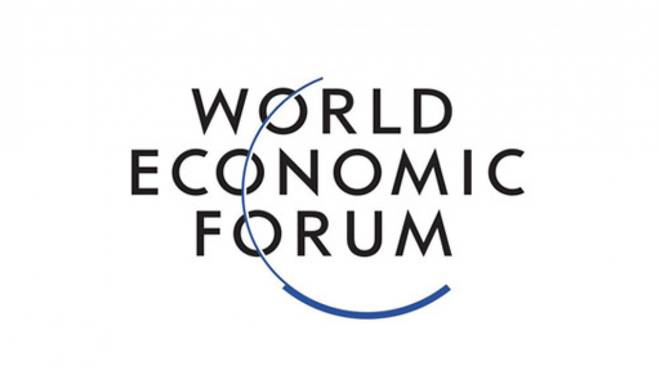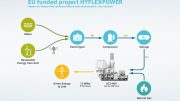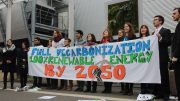For the past decade in Cairo, Egypt, one of the most important climate stories you’ve likely never heard of has been playing out. In 2014, when faced with a rolling energy crisis with an average of six power cuts per day, Egypt decided to limit the energy use of the high-emitting industry — cutting natural gas flows to cement and fertilizer factories by almost one-third. These cutbacks meant unplanned shutdowns for these companies and significant production losses.
Yet out of that moment of crisis came a breakthrough. Arabian Cement — one of the largest industrial companies working in Egypt at the time — began looking for ways to use energy more efficiently. Working over the next several years and with a range of partners, the company implemented policies that cut its greenhouse gas (GHG) emissions by 15%. They opened the largest industrial solar facility in Egypt. Today, Arabian Cement could power nearly 3,000 homes per year solely with the energy it has saved.
This matters in the context of Arabian Cement and its climate footprint. But more broadly, it represents a blueprint for the kind of work we need to do all over the developing world to respond to the climate crisis. We must change “business as usual” in high-emitting sectors like cement, steel and chemicals. We must focus on developing countries, where the potential for transformational change is greatest due to rapid growth. And we must put climate finance to work and bring low-cost financing to get these projects off the ground.
The end of business as usual for heavy industry
Heavy industry currently accounts for about one-third of global energy use and one-quarter of global GHG emissions. Carbon emissions from this sector need to decline by an astounding 93% by 2050 to achieve net zero carbon emissions. Developing economies currently account for up to 90% of combined heavy industry output. They are also home to heavy industry assets like factories, facilities and machinery that are relatively young — just 10-15 years old on average. These countries have an opportunity to set their industrial sectors on a zero-carbon path now. They can start with incremental innovation, such as energy and resource efficiency and material circularity, in existing assets.
The Climate Investment Funds (CIF), which helps finance transformative climate action in the developing world, and UNIDO, a specialized agency of the UN that assists countries in economic and industrial development, have together identified three interrelated challenges obstructing progress: policy, financing and buy-in from affected parties.
Developing countries can have policy bottlenecks or otherwise lack the enabling environment for climate action in industrial sectors.
Financing is hard to find. Developing countries are often confronted with unfavorable terms when it comes to lending opportunities. Financial institutions, especially in the private sector, are not keen to invest in first-of-their-kind, potentially risky projects.
There is a challenge of buy-in from all affected parties. As we move from dirtier sources of energy to clean ones, the jobs and livelihoods of millions of people may be affected. Communities need to be fully empowered to cope with change and help build a greener society.
A chain reaction for decarbonization
In recent months, UNIDO and CIF have been working closely together on a new kind of partnership in the high-emitting industry space designed to set off a “chain reaction” of climate action across the developing world. Through this partnership, they aim to work together with countries as they develop roadmaps to net zero and identify existing gaps — especially funding gaps. That information can then be used to bring capacity support and low-cost financing through multilateral development banks to get these first-of-their-kind projects off the ground while helping to deliver a just transition. The goal is to use the roadmap to support early transformational projects that can bring private sector financing at larger scale, helping to create a virtuous cycle that can drive growth across entire sectors, regions and countries.
This model combines the strengths of CIF and UNIDO’s work in the developing world to equip emerging markets with tools they can use to respond to the climate challenges they face. We are ready to apply it to the green transformation of heavy industry — a transformation that will contribute much to our collective response to the climate crisis. It will take many stakeholders working together — local and national governments, multilateral development banks, financial institutions, the private sector, labor and civil society.
What happened in Egypt shows decarbonization without great financial losses is possible and can be economically sound. There is no reason a similar series of events cannot occur elsewhere. Together we can catalyze the kind of chain reaction that can respond to our climate challenges today.
Daniel Morris Clean Energy Lead, Climate Investment Funds
November 15, 2023





